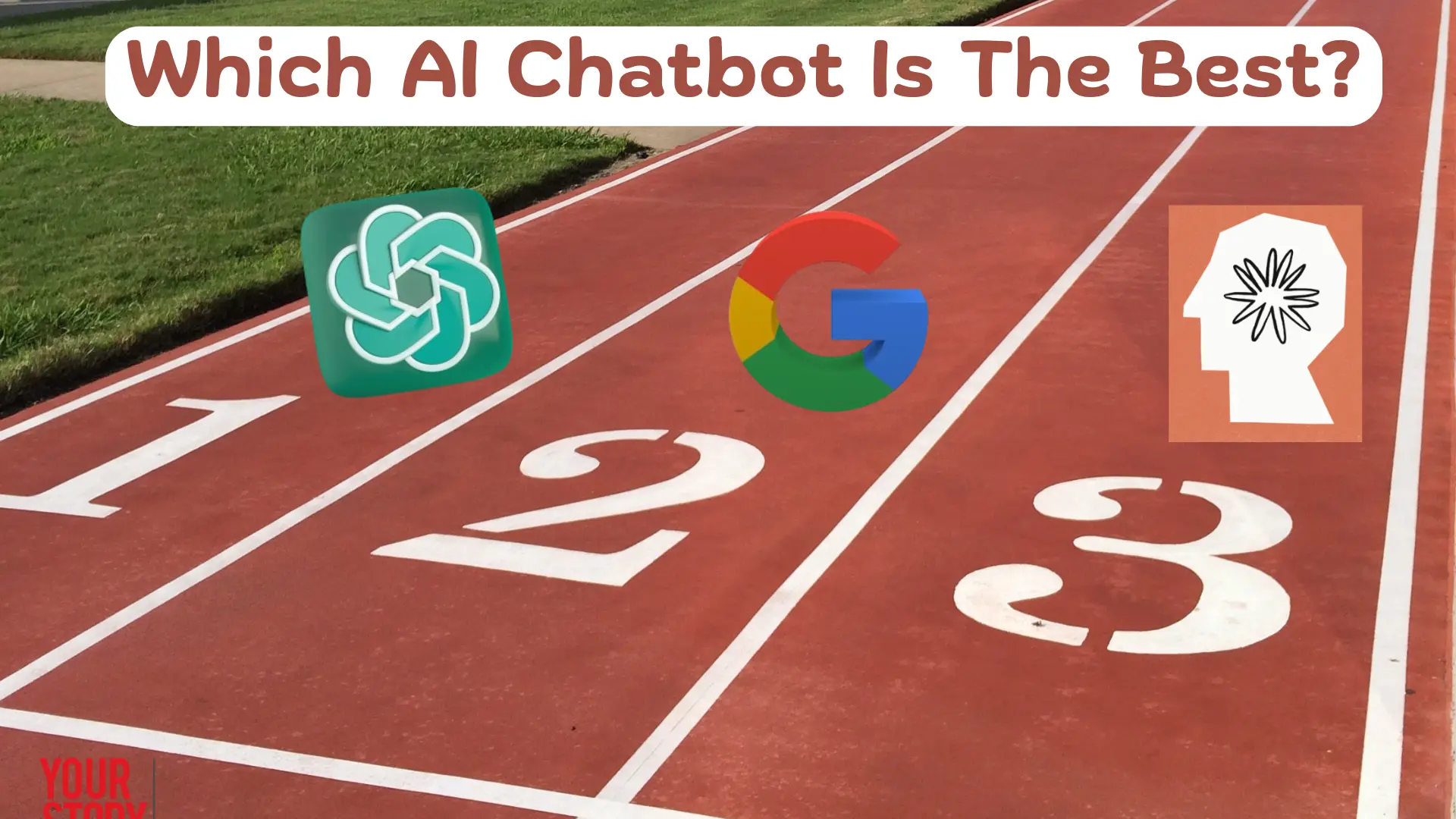AI chatbots face-off: ChatGPT vs. Claude vs. Gemini
Amongst the top-rated AI models, which one is best for your startup? Here is a detailed review of ChatGPT, Claude and Gemini to help you decide.
In the fast-evolving realm of artificial intelligence, chatbots have become a crucial element of our everyday interactions. From customer service to personal assistants, these AI-powered virtual agents have transformed the way we engage with technology.
Today, we will delve into the clash of the AI titans: ChatGPT, Claude, and Google Gemini - three chatbots that have been making waves in the industry. But the main question remains, which chatbot reigns supreme? Here is a detailed review of these AI models so keep on reading!
1. OpenAI's ChatGPT

Let's begin with ChatGPT, an advanced AI bot from OpenAI. ChatGPT is renowned for its exceptional ability to understand and process natural language. This AI chatbot is capable of human-like conversations on an extensive array of subjects, showcasing its versatility as a virtual assistant.
- Logical reasoning: ChatGPT-4o has better reasoning capabilities than its predecessor. This AI model passes key AI benchmarks such as LogiQA and ReClor. However, GPT-4o cannot handle highly complex or trick mathematical questions.
- Speed: GPT-4o is relatively faster than its predecessors in response.
- Multi-modal capabilities: GPT-4o supports text, audio, and video prompts and shares outputs in various formats.
- Coding: GPT 3.5 and GPT- 4 seem better at programming capabilities than its newer model GPT-4o.
- Pricing: OpenAI provides four plans. They are free, plus, team and enterprise that starts from $20/month.
Strengths: It has an impressive ability to solve coding queries and quickly perform complex tasks. ChatGPT has also garnered praise for its conversational prowess.
Weaknesses: For context-specific tasks, sometimes multiple prompts can be required. Moreover, it may give inaccurate or dissatisfactory outputs for tricky questions.
Verdict
ChatGPT is a user-friendly AI chatbot that is suitable for businesses that have specialised needs for multi-modal tasks and programming. Moreover, ChatGPT 4o is available at affordable rates while supporting more than 50 languages that cater to a wide audience.
2. Anthropic's Claude

Credit: https://www.anthropic.com/news/claude-3-5-sonnet
Next up is Claude, an AI model developed by Anthropic. This chatbot excels at Natural language understanding (NLU) giving ChatGPT a good competition. If you're looking for quick, accurate responses to your questions, Claude is your go-to. But it's not just about quick answers—Anthropic's AI models, like Sonnet, Opus, and Haiku, are each designed for unique purposes, empowering professionals to choose the perfect AI companion for their specific needs. What truly sets Claude apart, though, is Anthropic's commitment to ethical AI.
- Logical reasoning: Claude's AI models are at par with Gemini and ChatGPT for logical reasoning queries.
- Speed: Claude 3.5 Sonnet is faster than ChatGPT-4o.
- Multi-modal capabilities: Claude's major drawback is that it cannot provide image or video outputs. However, it can perform various visual representation tasks for data analysis.
- Coding: According to Anthropic, Sonnet 3.5 is capable of solving 64% of coding problems
- Pricing: Claude offers a free plan and 2 paid subscriptions namely Pro and Team that cost $20/month and $25/month respectively.
Strengths: Claude's accuracy and intuitive conversational experience have earned it a loyal following.
Weaknesses: Lacks multi-modal capabilities and may give hallucinate outputs.
Verdict
Claude is a versatile AI model with 3 versions that deliver specific needs. For instance, Haiku specialises in text-based tasks, Sonnet 3.5 is known for its speed whereas Opus is the most intelligent AI bot from this family. Startups that require highly specific data visualisation work or deal with complicated coding problems can leverage Claude.
3. Google's Gemini

Last but not least, we have Google Gemini, the latest entrant in the chatbot arena. Google Gemini boasts cutting-edge AI technology, powered by Google's extensive data repositories and machine learning algorithms. This chatbot offers a range of features, including voice recognition, natural language processing, and predictive analytics. Early reviews of Google Gemini have been positive, with users praising its accuracy, speed, and reliability
- Logical reasoning: Gemini 1.5 Pro and Flash are specialised in solving complex reasoning tasks. However, it is not at par with ChatGPT's newest model.
- Speed: According to Google, Gemini 1.5 Flash is 20% faster than ChatGPT-4o.
- Multi-modal capabilities: Gemini is built to understand text, code, image, audio and video prompts. So far, this AI model can only generate 1:1 aspect ratio images.
- Coding: While Gemini's programming capabilities are more concise and have better explanations, GPT-4o and Claude have overpowered this AI model.
- Pricing: This AI chatbot is available for free with rate limits. Users need a Google One AI subscription priced at Rs 1,950 per month to use the premium version of Gemini.
Strengths: With its advanced capabilities, Google Gemini excels at creative content creation tasks.
Weaknesses: Gemini lacks programming queries compared to ChatGPT and Claude.
Verdict
Gemini is a suitable AI model for businesses that need to produce various types of content and creatives such as blogs, articles, stories, etc. Moreover, it leverages Google's search engine so its browsing capabilities are solid.
Which AI bot is the best?
Each of these chatbots brings unique strengths and weaknesses to the table. ChatGPT excels in natural language processing and context understanding, Claude offers advanced programming assistance and Google Gemini is excellent at creative tasks.
Ultimately, the supremacy of a chatbot depends on its ability to deliver personalised, accurate, and user-friendly experiences. Keeping these factors in mind, ChatGPT-4o seems to have the upper hand but Claude and Gemini are giving OpenAI a tough competition.
As the AI landscape continues to evolve, the contest among chatbots will only intensify, driving innovation and pushing the boundaries of what is possible in virtual assistance.




